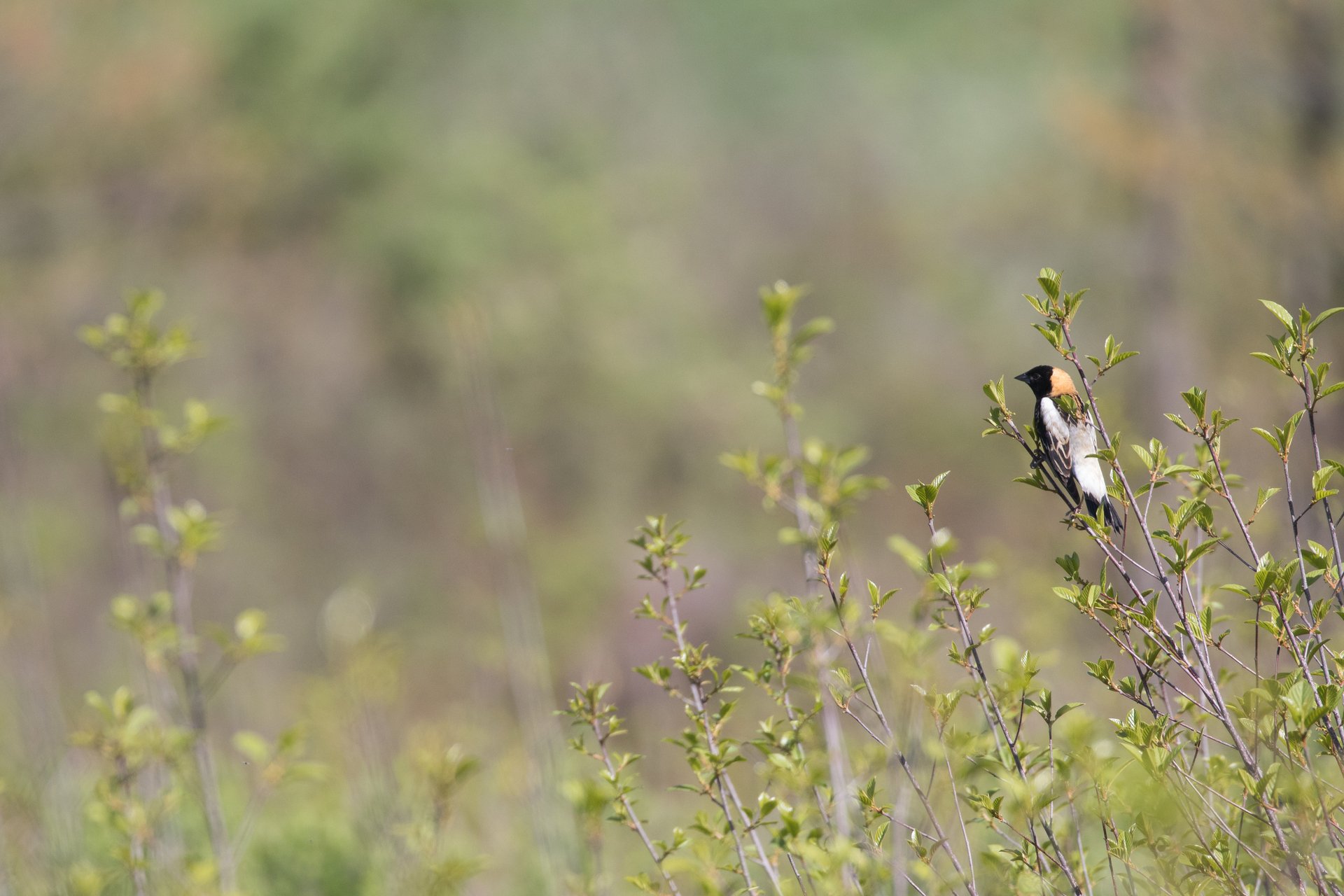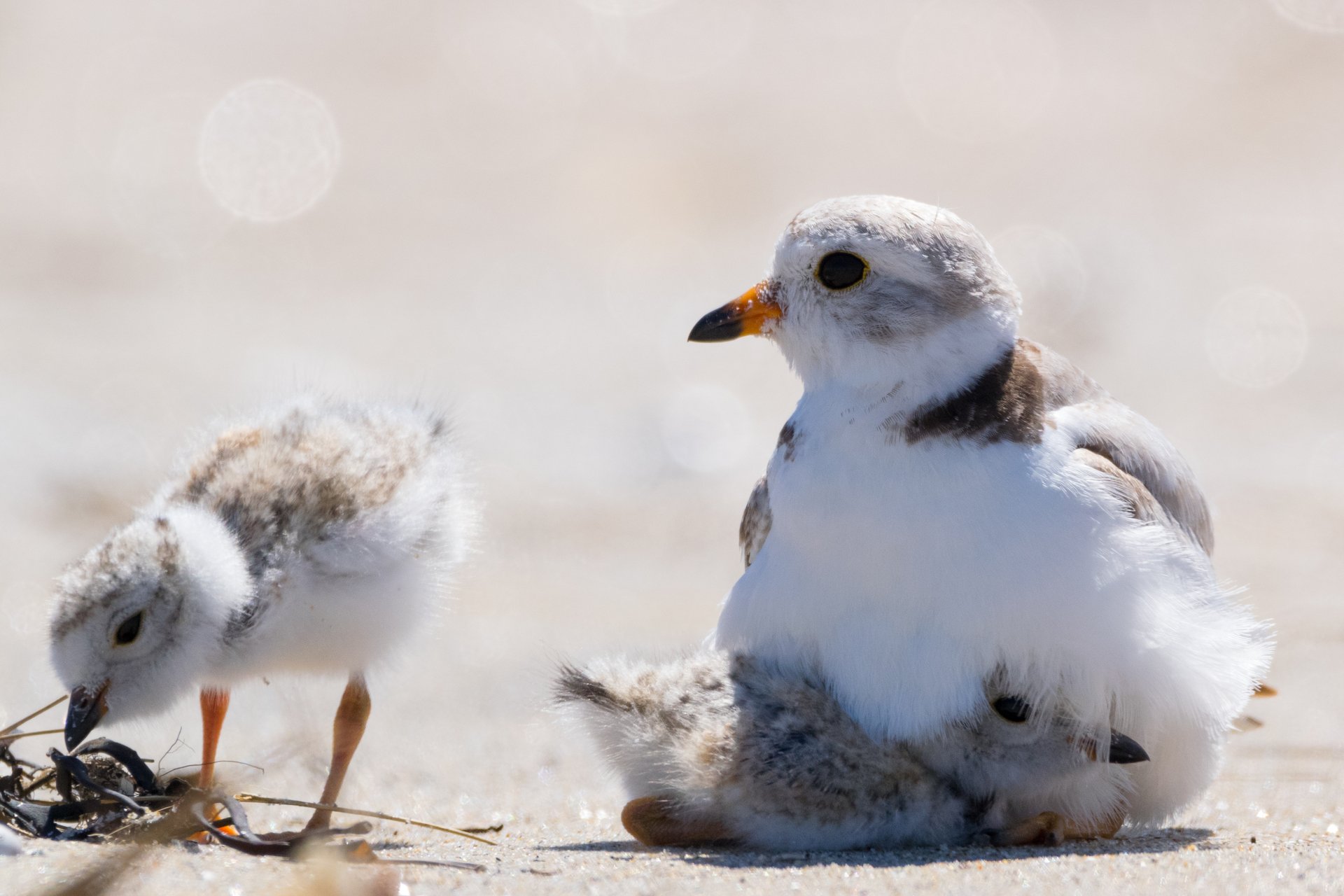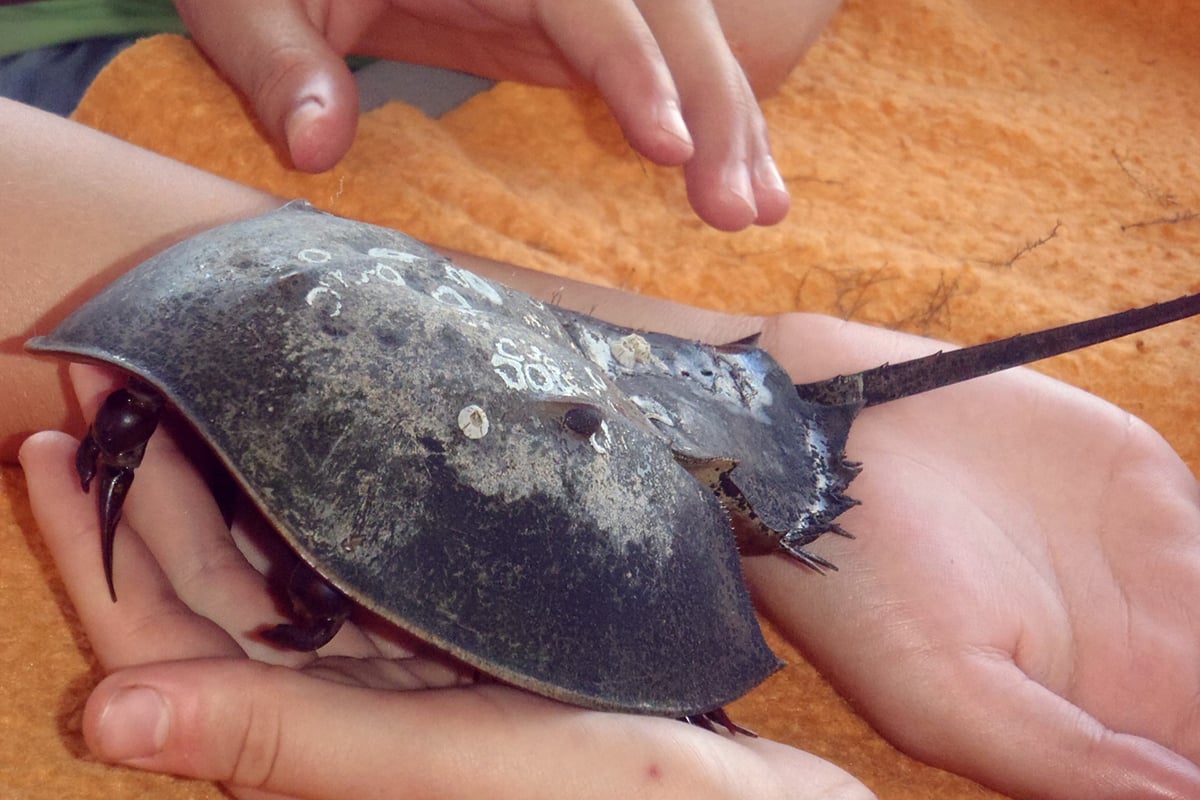Bird Conservation & Research
Grassland Bird Program
The farmlands and open fields of New England would not be complete without the iconic grassland nesting birds that use these habitats as nurseries.
But across the US, quality grassland bird nesting habitat is becoming rarer as fields are developed or farmed more intensively. With this loss of habitat comes alarming declines in both the range and abundance of many grassland nesting species.
During the summer, species such as Savannah Sparrows, Bobolinks, and Eastern Meadowlarks—as well as state-endangered Upland Sandpipers and Grasshopper Sparrows—nest in our large fields. Without our working landscapes of agricultural properties and open-space fields, breeding grassland bird species would not exist in Massachusetts.
A Steep Decline
Grassland birds are disappearing at an alarming rate. Between 1966 and 2012, they have experienced steeper, more consistent, and more widespread population declines than any group of birds in North America. In Massachusetts, many breeding grassland birds are identified as needing urgent conservation action.
Although the loss of agricultural land and open fields threatens these species, their decline is hastened by the intensification of farming practices—simply, many fields are now being mowed earlier and more frequently in the summer than they were in the past. These changes are detrimental to ground-nesting grassland birds, as their eggs and nestlings are directly exposed to haying machinery. Those adults that do survive the mower blades may not have enough time to complete a re-nesting attempt before migrating south to their wintering grounds.
Taking Action to Protect Grassland Birds
Owners and managers of meadows, hayfields, and pastureland can make a real difference in protecting these species by implementing bird-friendly management practices. Our task is to find creative ways to make safe havens on private and public lands for these birds to raise their young.
To help landowners and managers understand this issue and develop sustainable management practices, Mass Audubon has developed several strategies.
Best Management Practices
Mass Audubon’s Bird Conservation team has developed an informative document that outlines best management practices for nesting grassland birds for fields owned by municipalities, land trusts, private landowners, and conservation groups.
The Bobolink Project
The Bobolink Project uses donated funds to provide financial assistance to participating farmers who modify their mowing schedules so that grassland nesting birds can successfully raise their young. The Bobolink Project is a proven approach that can protect birds and farms. Donate, enroll a farm, or learn more
Research and Monitoring
In addition to the above, Mass Audubon continues to research and monitor the state of grassland birds, working on our wildlife sanctuaries and with partners on a regional level.
At Mass Audubon, we are working on a number of exciting projects to help declining grassland bird populations, ranging from work on our wildlife sanctuaries, to region wide surveys and projects that focus on a particular species.
Monitoring helps us understand why grassland species are declining by providing us with long-term data about northeastern grassland bird populations.
Through the work of the Breeding Bird Atlas and State of the Birds report, Mass Audubon was able to get a clear understanding of the condition of grassland birds populations in the Commonwealth.
On a broader scale, Mass Audubon conducted a region-wide survey of grassland bird populations throughout New England. This regional data on grassland bird communities is critical to understanding the severity of declining trends, and in implementing effective management practices to help reverse this decline.
Partnerships
Mass Audubon understands the importance of building partnerships to help declining grassland species at a regional scale. To complete the inventories, we worked with:
- Massachusetts Department of Fisheries and Wildlife
- Vermont Center for Ecostudies
- Maine Department of Inland Fisheries and Wildlife
- New Hampshire Audubon
- University of Delaware
- University of Vermont
- Audubon Vermont
- Audubon New York
- Ag Allies
These partnerships help us spread the word about grassland birds over a larger scale, we are working together to develop outreach programs to help people understand how they can benefit grassland birds.
Latest News
See MoreThe Bobolink Project Takes Flight: Applications Now Open
Keep ReadingRecord Numbers of Piping Plovers Nest on Mass. Beaches
Keep ReadingDrop-in Winter and Spring Family Programs at Joppa Flats
Keep Reading




